Conversing with qbo¶
qbo allows deeper and more conversational, natural language querying as opposed to search. A conversation involves questions, follow-ups, multiple participants and a transcript. The value of this transcript is often more important than the result since it documents how data is being manipulated within the conversation. It shows the path that the user took to arrive at the insight.
qbo conversations are powered by its understanding of data, which is in-turn based on a logical data-model. The logical data-model, in turn, hooks up to the enterprise data. qbo can support fairly sophisticated conversations around the entities that it is made aware of, without requiring any customization and/or training.
A conversation typically starts with a questions around an entity, say number of trips, yearly.
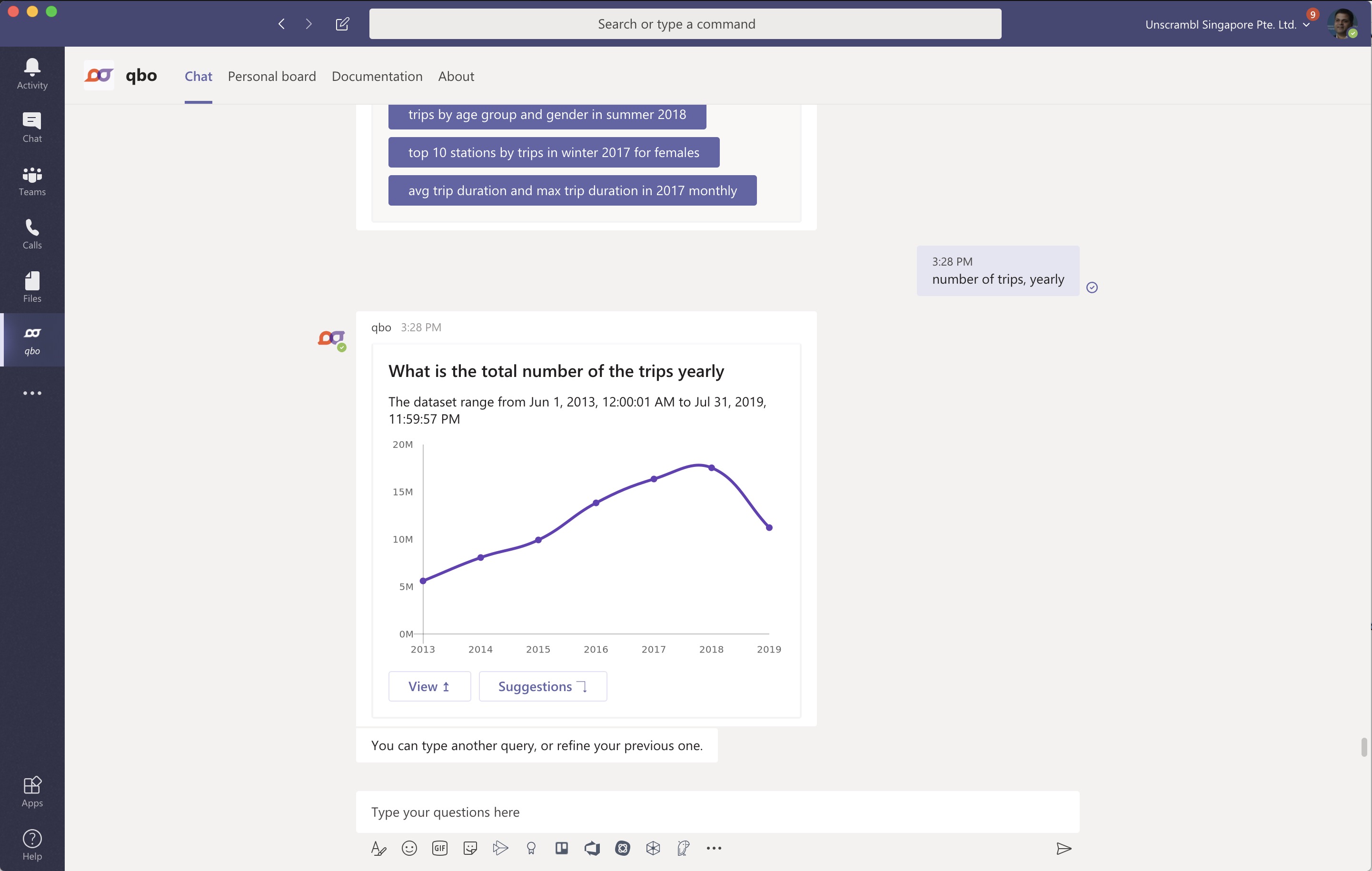
This may peek a user’s interest and the user may ask a follow-up questions like trips in 2018, monthly. In some cases, qbo may seek clarification about the question - often related to determining if the questions should be responded in context (i.e. a further refinement on the previous question) or a new question.
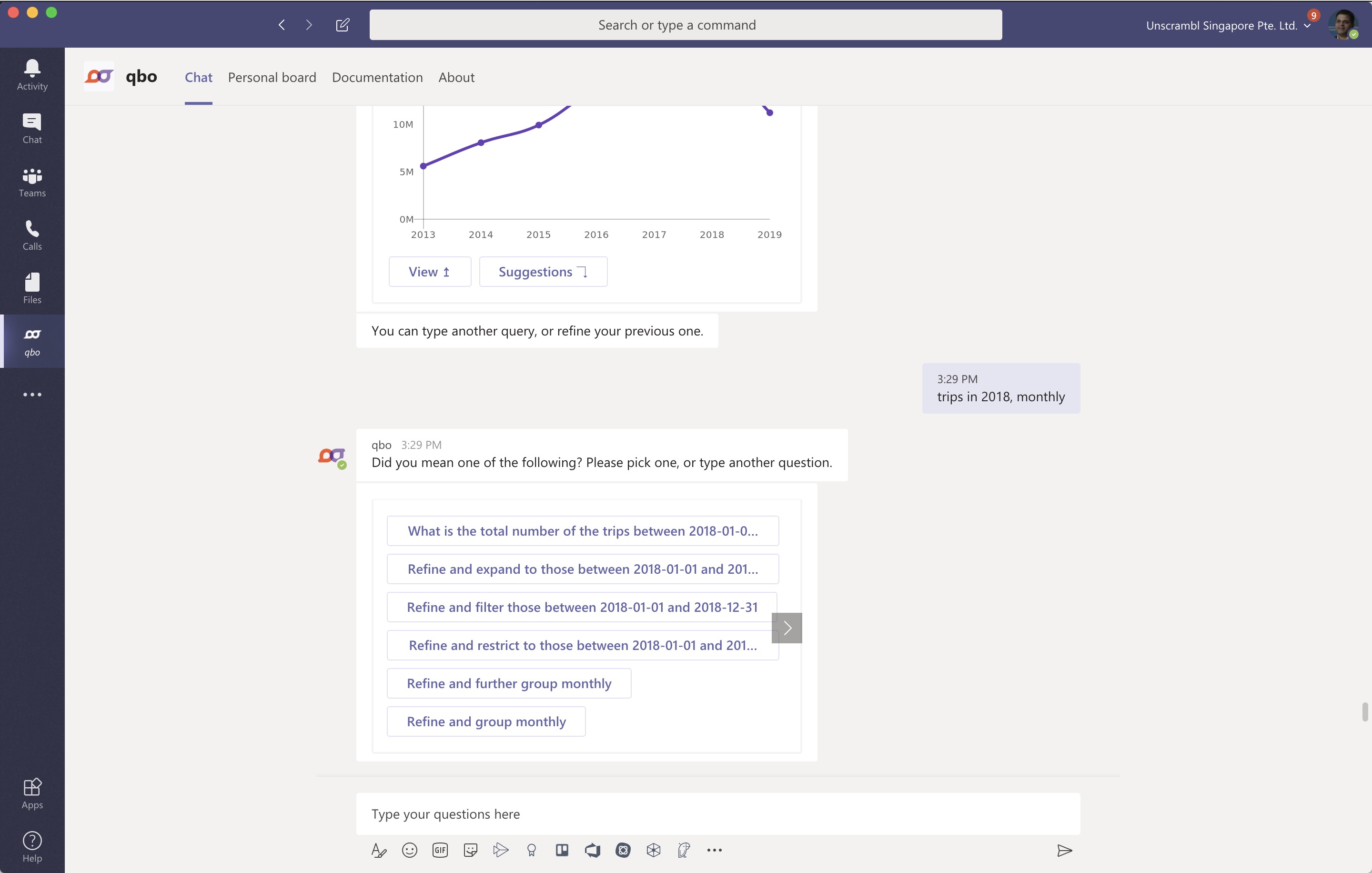
Choose the correct interpretation, and qbo continues to learn.
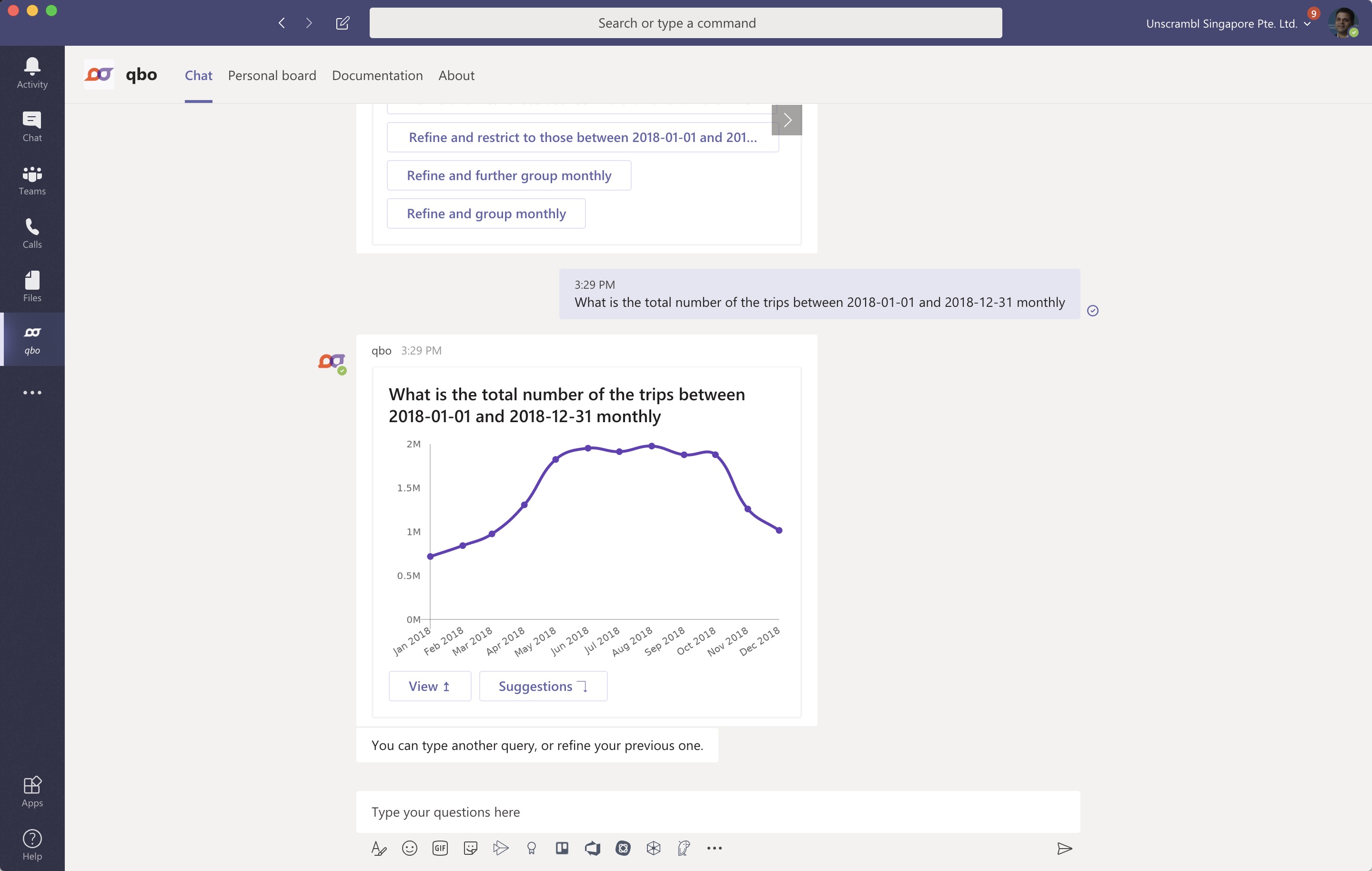
This may further peek a user’s interest in the distribution of such trips by gender, and a user may ask by gender. qbo maintains the context and responds appropriately.
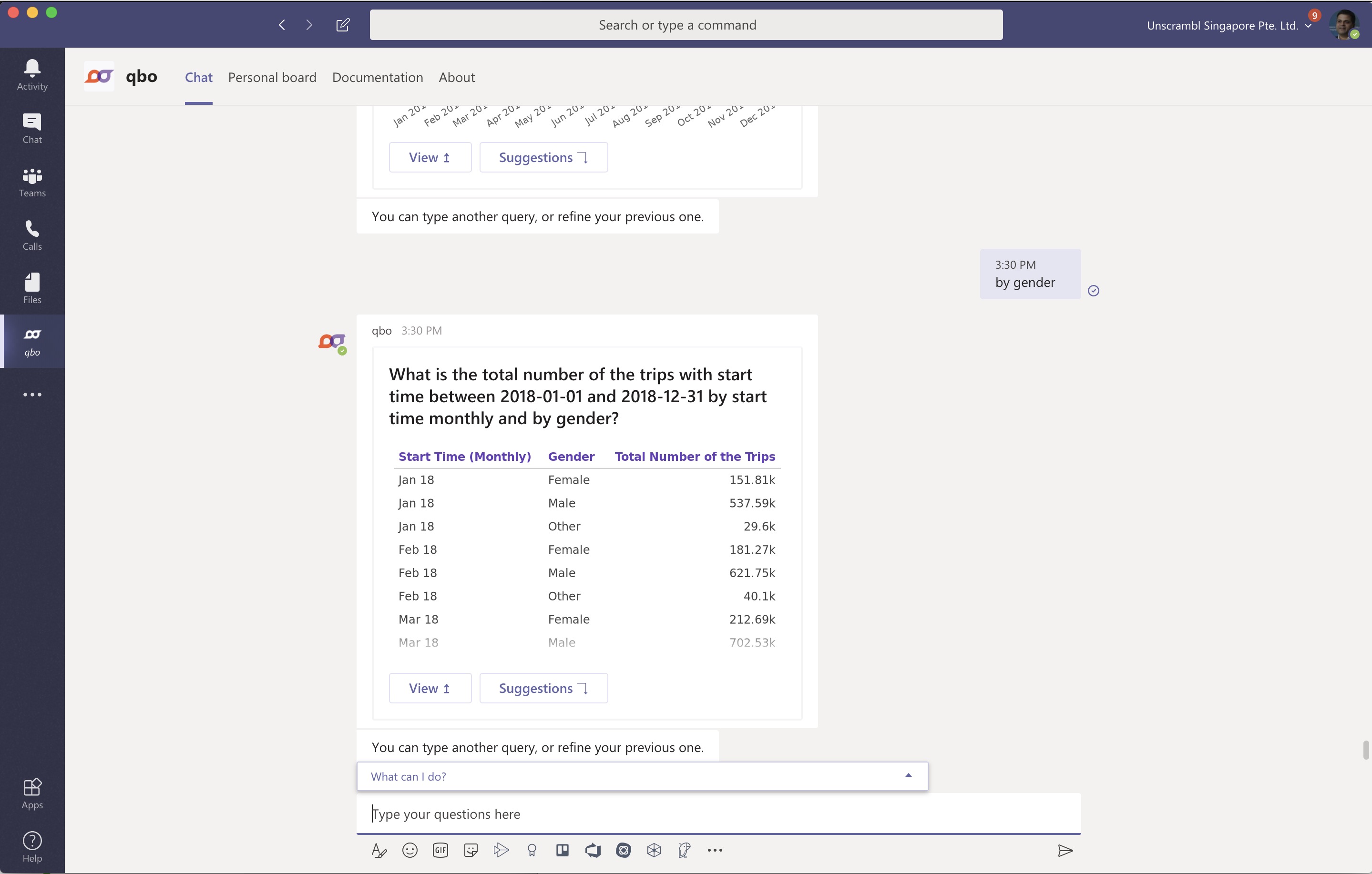
Another impressive capability of qbo is its ability to guide conversations and suggest further refinements and/or follow-up questions
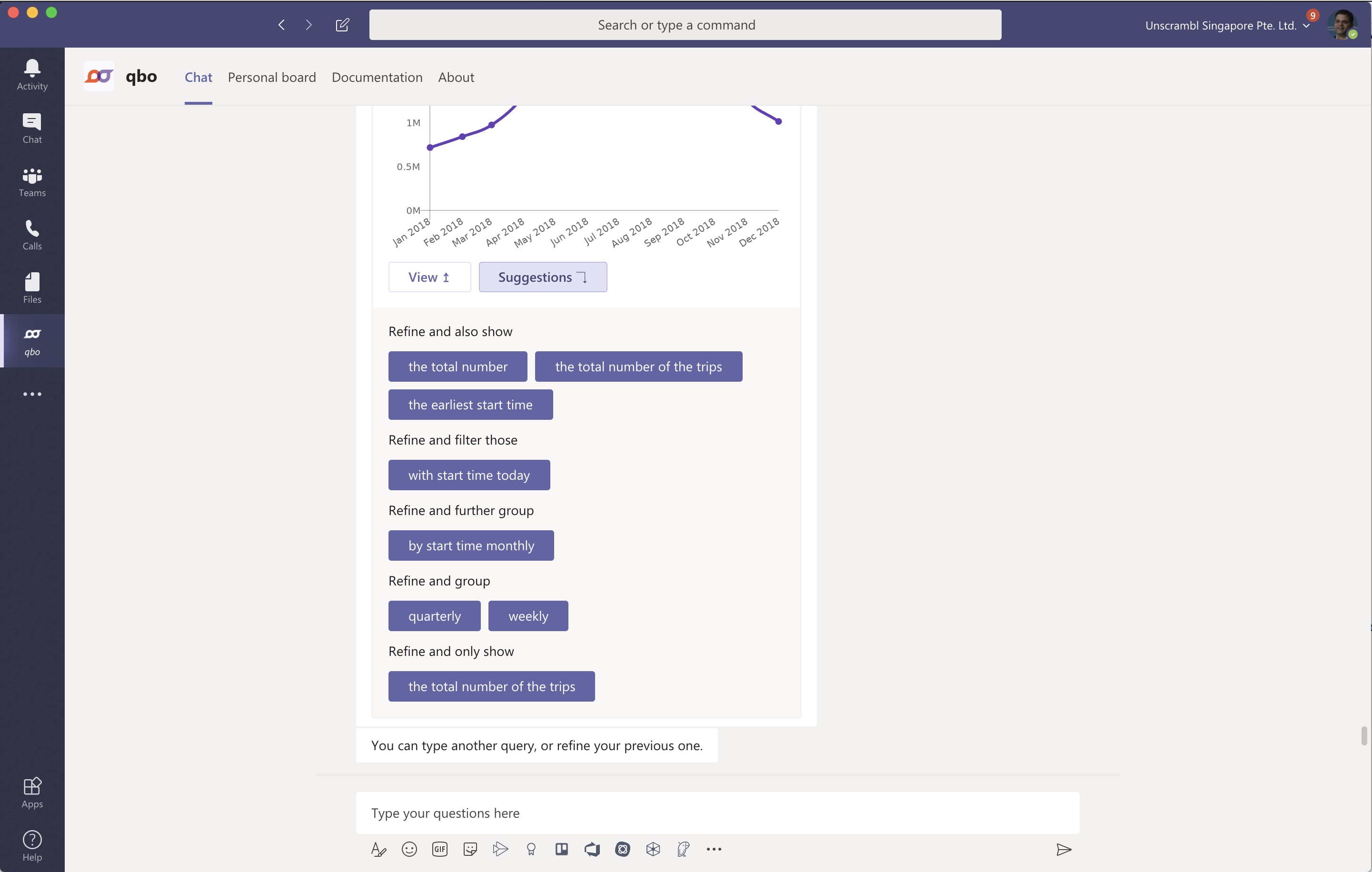
A user may type cancel at any time to clear the context, if one exists.
You can learn more about qbo’s conversational capabilities in the user guide.